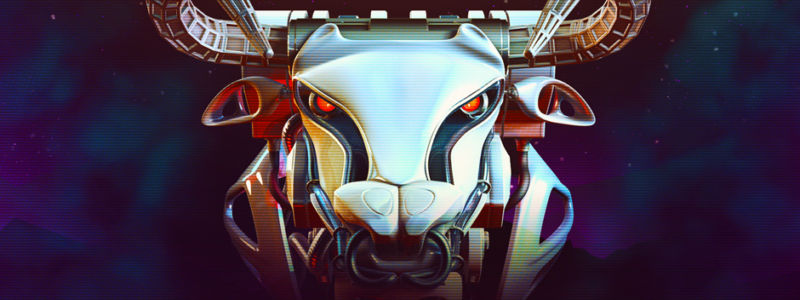A video game called Polybius is actually coming out. Will it kill you?
Ars Technica 2016-10-08

Enlarge / A video game called Polybius actually exists. The PlayStation VR exclusive doesn't yet have a release date, but it will have trippy, retro visuals and this weird-looking cyber-bull. We have yet to learn whether or not it will cause amnesia or cause players to be whisked away by men in black. (credit: PlayStation Europe)
Arcade historians and retro gaming geeks have heard a weird word whispered in the wind for decades: Polybius. According to legend—but never verified—an arcade machine with that name appeared in Portland, Oregon in the early '80s and caused "severe headaches, amnesia," "horrific nightmares, and suicidal tendencies" in its players. (The story also had stuff about "men in black," a military-run study, and other awesome-sounding nonsense.)
That game may have never been released, but a game called Polybius will soon exist. Sony posted the news on its PlayStation blog on Friday, confirming that the game will be made by certifiably weird developer Jeff Minter, the man responsible for the trippy, retro-inspired classics Tempest 2000 and Space Giraffe. The PlayStation VR exclusive was announced by way of a bizarre, 1,600-word tall tale written by Minter himself, complete with an allegation that he laid eyes on mysterious, decades-old hardware in an undisclosed location:
In the corner, beneath a sheet, was hidden a single, somewhat unusually-shaped cab. I was informed again of the terms upon which I would be shown what was beneath: no pictures, no video, no precise descriptions of gameplay, definitely no locations that could pin it down to anywhere closer than just the vicinity of darkest Basingstoke. Broad descriptions were okay, and of course the name is legendary. Mythological, even.
Polybius for PlayStation VR.
Minter also attached a brief snippet of his PSVR game in action, which appears to be an evolution of the TxK video game he has already released for the PlayStation Vita and planned to release for other systems before he received cease-and-desist orders from the license-holders who currently carry the Atari banner. (TxK is a spiritual successor to Tempest 2000, a game that Minter singlehandedly coded for the Atari Jaguar.) At that time, the frail, withering ghost of Atari alleged that it had never filed a lawsuit over Minter's work on TxK; Minter responded by posting a letter written by Atari's law firm detailing at great length the firm's intent to sue.